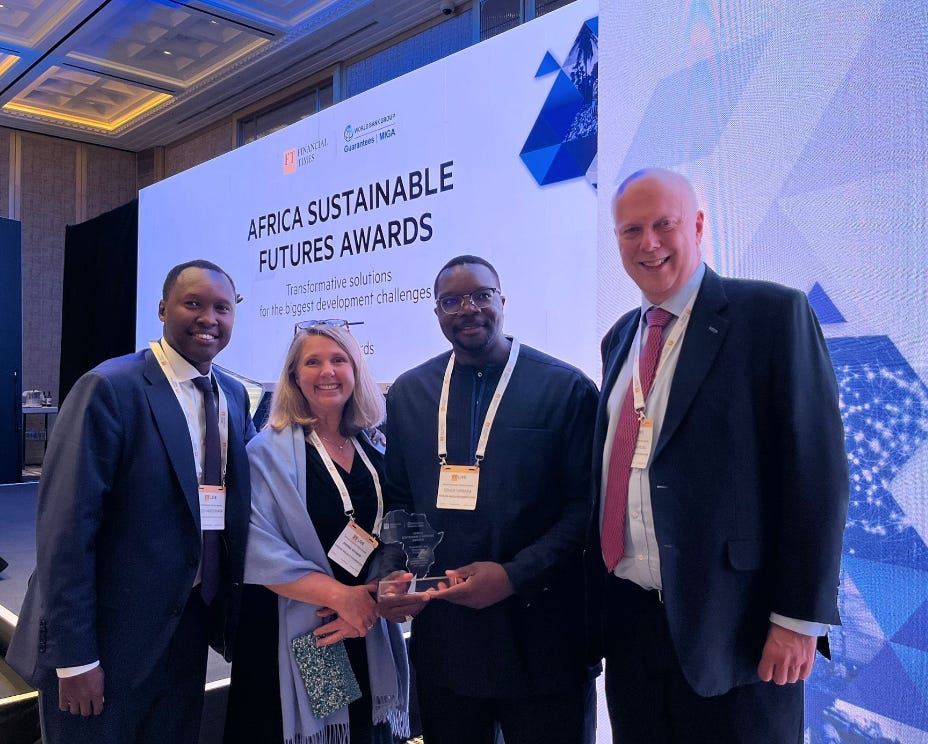African Wildlife Foundation Wins Award for Biodiversity Economics Work
Several African nations have seen biodiversity contribute 8-12% to their GDP, including Kenya, Zimbabwe, South Africa, Namibia and Botswana.
NAIROBI, Kenya— The African Wildlife Foundation (AWF) has won the Biodiversity and Ecosystems Protection category in the inaugural Africa Sustainable Futures awards, sponsored by the Financial Times and World Bank Group's Multilateral Investment Guarantee Agency, writes Winston Mwale.
The award, presented Wednesday in London, recognizes AWF's work in developing biodiversity economies, which integrate natural resources into economic decision-making from national to household levels.
"At AWF, we are convinced that nature is an asset for Africa, that it can drive our economic development," said Edwin Tambara, AWF director of global leadership, accepting the award.
"By working with governments to make sure that biodiversity can be seen as an economic pillar, we can create opportunities for Africans, particularly for African youth."
Several African nations have seen biodiversity contribute 8-12% to their GDP, including Kenya, Zimbabwe, South Africa, Namibia and Botswana.
In Zimbabwe, where AWF helped develop the country's Biodiversity Economy Report in 2022, nature-based tourism generates $1 billion annually.
Additional revenue comes from non-timber forest products ($500 million), trophy hunting ($20 million) and wild fisheries ($12 million).
"As the continent's development agenda shapes up, we expect biodiversity economies to become a key economic pillar for African nations," said AWF CEO Kaddu Sebunya.
He emphasized the potential for job creation and revenue generation, particularly in conservation landscapes.
The awards program aims to promote sustainable solutions to development challenges in Africa by recognizing projects that protect ecosystems while creating economic growth opportunities.




